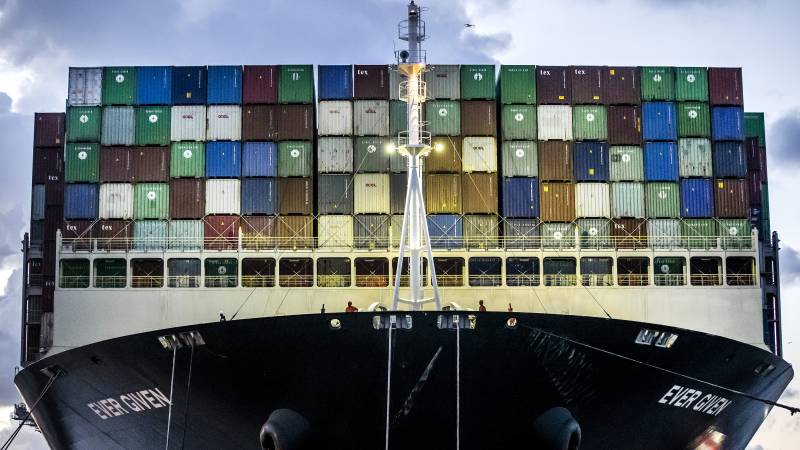Due to the sharp increase in transportation costs for shipped goods, inflation may rise another 1.5 percentage points this year. The International Monetary Fund (IMF) writes. Over the past 18 months, shipping costs have increased sevenfold due to disruptions in transportation chains caused by Corona.
The IMF analysis comes on top of already high inflation expectations. like him is expected The Dutch central bank’s inflation rate is around 7 percent for this year.
According to Edwin Asveld, director of logistics company TransHeroes, the impact of higher container transportation costs is underestimated. “People aren’t aware of it. This connection has never been seen before.” An IMF analysis shows that more than eighty percent of goods are transported by sea, mostly in containers.
earlier In particular, rising energy and food prices were cited as reasons for higher inflation. But the International Monetary Fund wrote that transportation costs have the same effect on the rate of inflation. Because even though a greater portion of our disposable income goes to fuel and food, the costs of moving goods by sea fluctuate more. This is reflected in inflation.
Clothes, frames and screens
In the Netherlands, furniture, toys, clothing, frames and screens in particular are becoming more expensive as a result. “A nice 150-euro chair can suddenly cost 200 euros,” Asveld says. Items that take up a lot of container space are basically getting more expensive, because more containers and ships are needed to move them.
The International Monetary Fund did not include in its analysis the consequences of the war in Ukraine. In the past month, container prices have shown a slight decrease, Asveld says. But due to uncertain factors such as war and Last Lockdowns in China, the question is whether this downward trend will continue.
On top of the problems in global maritime trade is a shortage of personnel European road transport† This also affects inflation, says Asveld. To attract people, salaries will rise. The carriers also have to get this money from somewhere. As a result, products can become more expensive.







